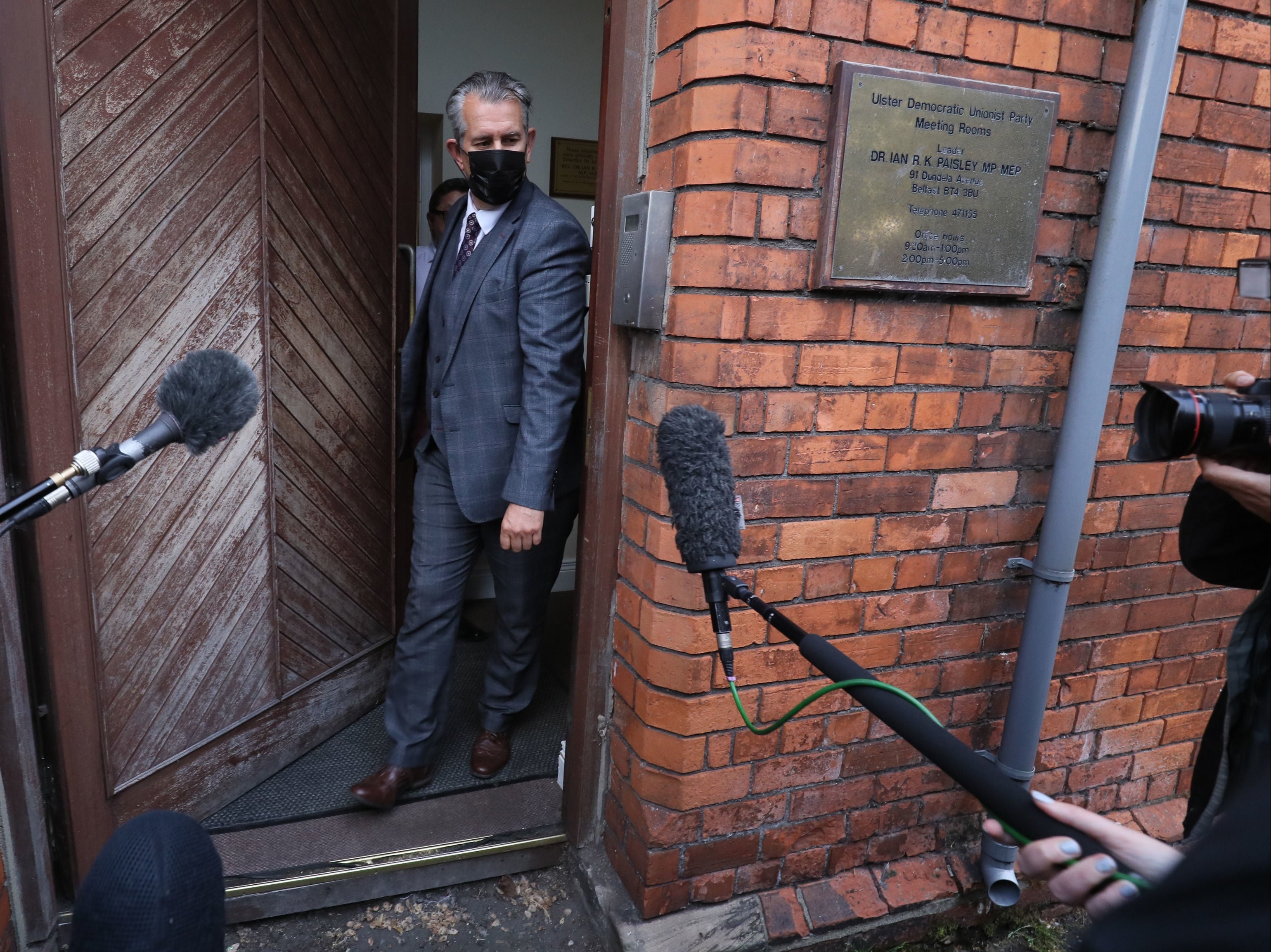Is this the end of the DUP?
Despite 50 years of relative success, Sean O’Grady argues that there isn’t an easy way out of the party’s current crisis


The best way to understand a political crisis is to try and get inside the deranged minds of those doing the panicking. Obvious, I know, but sometimes neglected in all the grand theories and psephological calculations. Thus, to understand when and why a party gets rid of its leaders, it’s usually because MPs are terrified that they will be annihilated at the next election, rather than due to that much consideration of principles or the national interest. At its crudest, the minister, MPs and other elected representatives are frightened of losing their jobs, which they’re rather fond of (and they are often underqualified for alternative careers). So, too, with the Democratic Unionist Party.
For the last couple of decades, the DUP has enjoyed a pretty tight grip on unionism and on a leadership position in Northern Ireland, albeit within the often unstable framework of a power-sharing executive. Now, though, it is faced with threats that must sometimes feel existential. The party’s obduracy and truculence, and some failures in office (such as an expensively bungled green energy scheme), has pushed moderate elements within unionism towards the centrist Alliance Party (originally unionist, but rather agnostic with it). There is a trend there.
On the other side, there is another trend, post-remit – a resurgent wave of militant loyalism, with a new grouping, Traditional Unionist Voice, which finds the DUP wanting. For people of this mindset – including plenty within the DUP – leaders such as Arlene Foster and Edwin Poots have been, if anything, not obdurate enough and far too much of a pushover on toxic issues such as the Northern Ireland protocol (which imposes an economic border with the rest of the UK), and the status of the Irish language, long viewed with suspicion in unionist circles. It is “culture wars” at their most vicious, drawing on 800 years of enmities and resentments lovingly nurtured for political ends. In a system of proportional representation, such realignments can occur even more rapidly than usual in Northern Ireland.
At the moment, then, the DUP is stuck in a dilemma. Appease its more “extreme” working-class loyalist base and lose moderate support to the Alliance Party and the older, more middle-class and moderate Ulster Unionist Party; or compromise with Sinn Fein and work within the Northern Ireland protocol, but haemorrhage the core support that sustained it through its highly-successful 50-year career. No recent unionist leader has had the charisma and credentials that Ian Paisley enjoyed, and which allowed him, stunningly, to enter into a political partnership with Sinn Fein’s Martin McGuinness, a former IRA man. The current, almost accidental first minister Paul Givan is regarded as a protege and creature of Poots, and lacks the support of his colleagues in the Northern Ireland Assembly. His days seem numbered.
So the party is stuck, paralysed by fear as it approaches the next round of elections to the assembly next spring. Many of their representatives could lose their jobs. If the DUP loses its narrow advantage as the province’s largest single party to Sinn Fein, then it would lose its claim to the office of first minister. For the first time in the province’s turbulent history, the top job locally would not be in the hands of a unionist, but held by an Irish republican. If it slumped to third place, it’d be unable to supply a deputy first minister (in effect a joint first minister) and lose even more power. So the members panicked when they thought Arlene Foster was giving too much away, and when they thought Poots was about to do the same, they panicked again.
The worst thing the DUP can do now, many of them believe, is to be soft on the protocol and the Irish language, for fear of a loyalist backlash. They cannot go into next year's elections with the blame for what are considered lethal threats to Northern Ireland’s “Britishness” and slide towards a united Ireland. Recent remarks by Leo Varadkar, the deputy prime minister of Ireland, and President Macron of France have made them even warier about the intentions of Dublin and Brussels. In reality, these issues will be settled between London, Dublin, Brussels and even Washington rather than Stormont in any case. Indeed, Brandon Lewis, the Northern Ireland secretary, has said he will legislate at Westminster on the Irish language if Stormont won’t.
That’s all fine, many in the party think, if the DUP can still pose as the adamantine block on such treacherous moves. They are defending unionism and unionists. They’d prefer it if they could do this within the Northern Ireland Executive and with a DUP first minister. If not, and the power-sharing executive collapses again, then so be it. At least they can’t be accused of being Lundies, or traitors, and will have a chance of retaining their salaries, perks, pension and power. That’s what really matters. Whether the next leader, likely to be Sir Jeffrey Donaldson, has the authority and skills to navigate the DUP to safety and stability in power in the centenary year of the existence of the province must be in doubt.

Join our commenting forum
Join thought-provoking conversations, follow other Independent readers and see their replies
Comments